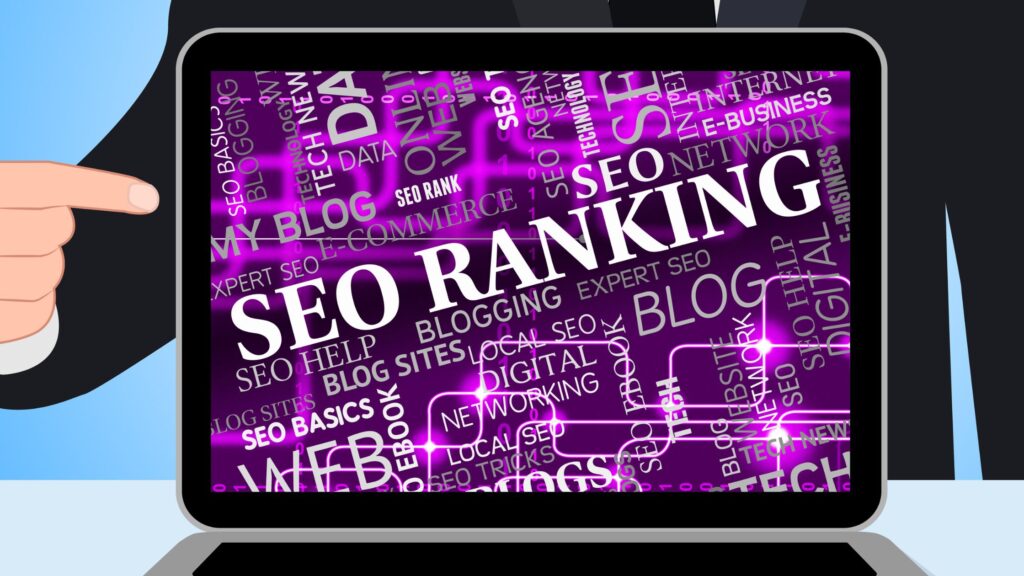Any follow-ups can be nerve-wracking especially when it comes to B2B sales. There are two questions here: what content should be put in follow-up...
Are you a small business owner eager to strengthen your online visibility and drive sales? Look no further than content marketing. By strategically implementing content marketing techniques into your marketing strategy, you can amplify your online presence, captivate your target audience, and boost your sales figures.
According to a survey by the Aberdeen Group, small businesses that use content marketing see an average of 6 times higher conversion rates compared to those that do not use content marketing.
But with so many content strategies and formats to choose from, it can be overwhelming to know how to start. That’s why we’ve put down a list of our top content marketing tips for small businesses.
Read on to learn how you can create and distribute valuable and relevant content that will help grow your business and reach your target audience.
What is Content Marketing?
Before delving any deeper, let’s understand what is content marketing.
Content marketing is a way to effectively reach and engage a specific audience through the creation and distribution of valuable, relevant, and consistent content. It can help you build trust and position yourself as a thought leader in your industry. Content marketing can take many forms, including blog posts, articles, social media posts, videos, podcasts, ebooks, and more.

The purpose of content marketing is to attract and retain customers by consistently creating and curating valuable and relevant content that addresses their needs and interests. By providing valuable information and resources to customers, businesses can build trust and credibility, establish themselves as industry experts, and ultimately drive sales.
Why is Content Marketing Essential for Your Small Business?
Content marketing can be a powerful tool for small businesses, providing numerous benefits beyond just supporting marketing efforts. Some of the key benefits of content marketing for small businesses include:
1. Building Brand Authority and Trust

By creating and sharing valuable and informative content, small businesses can establish themselves as experts in their industry, which can help build trust with their target audience. This can be especially important for small businesses that may not have the same level of brand recognition as larger competitors.
2. Showcasing Products or Services in a Unique and Engaging Way
Content marketing allows small businesses to showcase their products or services in a more creative and engaging way, helping them stand out in a crowded marketplace. This can be especially effective for small businesses that may not have the resources to create traditional advertising campaigns.
3. Attracting New Customers and Driving Sales
By creating content that speaks to their target audience’s needs and interests, small businesses can attract new customers and drive sales through content marketing. This can be especially effective if the content is tailored to specific buyer personas and includes calls to action that encourage conversions.
4. Improving Search Engine Rankings

By creating and sharing high-quality content on a regular basis, small businesses can improve their search engine rankings and make it easier for potential customers to find their websites. This can be especially important for small businesses that rely on online traffic for sales. A survey by Hubspot found that small businesses that use content marketing see an average of 55% increase in their website traffic.
5. Cost-effective Marketing Strategy
Content marketing can be a cost-effective way for small businesses to reach their target audience, as it does not require a large advertising budget. This can be especially important for small businesses that may not have the resources to invest in expensive marketing campaigns.
7 Most Powerful Content Marketing Tips For Small Businesses
Now that we’ve discussed the benefits of content marketing for small businesses, let’s examine some of the most effective strategies for engaging and retaining a large audience. These strategies are designed to be powerful and efficient, helping small businesses to maximize their content marketing efforts and achieve their goals.
1. Identify Your Target Audience
Before launching a content marketing campaign, it’s important to identify your target audience and understand their needs and preferences. To do this, consider developing marketing personas that represent different types of customers. This will help you get a better sense of what each type of customer is looking for, and allow you to tailor your content to their specific interests and needs.
In order to create personalized content that speaks to your audience, ask yourself the following questions: Who do you want to reach with your content? What do you think they would enjoy reading? And most importantly, what do you hope to achieve with your content marketing efforts? Are you looking to drive sales, build brand awareness, or generate leads?
2. Develop Your Content Marketing Strategy
Small businesses should create a plan that outlines their content marketing goals, target audience, and the types of content they will create and distribute. A well-planned and thought-out strategy will help small businesses stay focused and ensure that their content is aligned with their overall marketing goals. According to CoSchedule’s Trend Report: marketers with a documented content strategy are 3X more likely to report success.
Image Source – Marketing Strategy Documentation
3. Create Valuable and Relevant Content
The success of a small business’s content marketing efforts depends on the quality and relevance of its content. Small businesses should aim to create content that is valuable, informative, and useful to their target audience.
4. Utilize a Variety of Content Formats
Small businesses should experiment with different types of content, such as blog posts, articles, social media posts, videos, podcasts, and ebooks, to see what works best for their business and target audience. A survey by Wyzowl found that businesses that use video as part of their content marketing strategy have a good ROI.
5. Use Call to Action

Small businesses should include calls to action in their content, such as “Sign up for our newsletter” or “Learn more about our products,” to encourage their target audience to take specific action. A study found that including a call to action in the article templates can increase conversions by 83%.
6. Promote Your Content
Once small businesses have created and published their content, they should promote it through various channels, such as social media, email marketing, and paid advertising. This will help increase the reach and visibility of their content, and ultimately drive traffic and sales.
7. Analyze and Optimize
Small businesses should regularly track the performance of their content and use data and insights to optimize their content marketing efforts. This can involve testing different types of content, adjusting the distribution channels, and fine-tuning the calls to action to see what works best.
Successful Content Formats That Work Well For Small Businesses
There are many different content formats that can be effective for small businesses, and the best format will depend on the specific goals and target audience of the business. Here are a few content formats that are often successful for small businesses:
1. Blog Posts
Blog posts can be a powerful tool for small businesses, as they allow businesses to showcase their expertise and provide valuable information to their target audience. Blog posts can also help small businesses improve their search engine rankings, as they provide fresh and relevant content for search engines to index.
2. Social Media Posts
Social media is a powerful platform for small businesses to reach and engage with their target audience. Small businesses can use social media to share updates, promotions, and other relevant information with their followers.
3. Videos

Video content is becoming increasingly popular, and it can be a powerful way for small businesses to showcase their products or services in a more engaging and visual way. Videos can be shared on social media platforms or on a business’s website to drive traffic and sales.
4. Infographics
Infographics are a visual way to present information and data, and they can be an effective way for small businesses to convey complex ideas in a simple and easy-to-understand format. According to a study by the Content Marketing Institute, infographics are liked and shared on social media 3 times more than any other type of content.
5. Ebooks
Ebooks are a longer-form content format that can be used by small businesses to provide in-depth information on a specific topic. Ebooks can be used to showcase a business’s expertise and drive lead generation by offering the ebook in exchange for an email address.
Conclusion
By following the tips outlined in this blog, small businesses can create and distribute valuable and relevant content that speaks to their target audience’s needs and interests.
So, if you’re ready to take your small business to the next level, start incorporating content marketing into your marketing strategy today. You’ll be amazed at the results it can bring!
If you need help getting started or want to learn more about how to effectively use content marketing for your business, consider reaching out to our experts for guidance and support.




